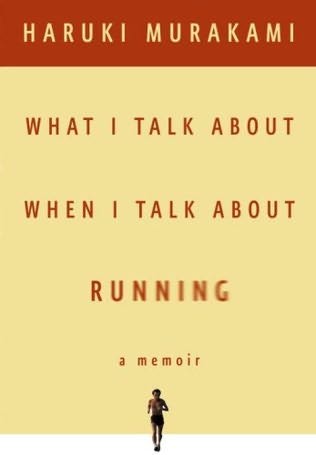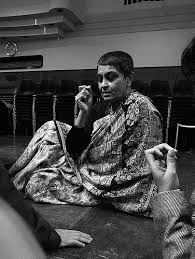
I have a friend who blogs about her practice of living inspired. I admire her constant search for inspiration and how she continues to find inspiration in unexpected places, filling her life with wonder and new possibilities.
Last week, an email exchange with her reminded me of her valued search for inspiration and I began to think about what inspires me. If you're not used to thinking in those terms, it's a little hard to get there. It takes some warming up and I drew a blank.
Spivak inspired me last week although it's still a swirling mass of challenging and intriguing ideas around my head. Did baking an amazing zucchini orange marmalade bread from the Tartine
But today, I finally finished What I Talk About When I Talk About Running (Vintage International)
It's interesting, you know. From reading the book, I didn't feel like I should pick up running or even write a book. Murakami wrote this book as a memoir of sorts, a quest to find out for himself what his personal standard has been as a runner and writer. He chronicles how he first started writing, first started running, and how those two shaped each other and his life's perspective.
Towards the end of the book, Murakami writes about becoming a better swimmer for triathlon competitions. He finds a coach who strips his form down and teaches him one thing at a time. At first, it is "awful and awkward" and he can't understand how learning to swim (for ex.) flat as a board without rotation is going to help him. Next, his coach introduces rotating his left shoulder only and makes him swim up and down the pool doing only that. And so on ad tedium until one day, everything clicks. Every part of his body is moving as it should. His old habits have been broken, his old form is no more, a new form has emerged, a synchronization of all the new parts. Revelation!
Murakami's experience reminded me of learning to play the piano. I started piano lessons when I was four years old and ended in college. For a time in my youth, my parents were convinced that I was going to become a concert pianist and I would practice for 2-3 hours and could only leave the bench to go to the bathroom. Since then, my fingers have become stiff and I am nowhere near the kind of fluid alacrity I had on the keys. But I remember the drills and the experience of revelation. I remember the scales, the arpeggios, my worn out Czerny book. I remember how good it felt when I conquered a scale and my fingers flew over something that had troubled me a few weeks before. I remember how my teacher and I would break down a piece and how I would practice each trill, each measure over and over again until it was flawless and everything came together. I had no false illusions about becoming a world class pianist overnight. I knew it would take hours of practice, dedication, and years of devotion.
Similarly, I feel the same way about printing and book arts. I have no illusions of becoming a letterpress printer over night. Slowly but surely through my classes, I have gained a vocabulary and dexterity with my movements that have helped me become more and more proficient at designing, setting type, and printing correctly.
Why is it then that I never applied this to the art of writing? Maybe it's because it's so foreign (unprofitable, impractical?) and language around it so pretentious and lofty. How many times have I read or heard, "writing cannot be taught"? The idea is that talent for writing is innate and either you have it or you don't. Everyday, I sit in front of my laptop or notebook (or worse, think about sitting in front of my laptop or notebook) and wonder about how to do what I want so much to do i.e. write the damn novel. The writer's life feels shrouded in mystery and fantasy, an inacessible dream. Or in other word(s), bullshit.
Murakami's memoir shows me that writing, like any other craft and skill, is about the process of doing things over and over again, mastering each small thing, taking each step towards the finish line, getting a coach, doing whatever it is to keep on the journey of living the way your heart takes you and learning to do it with the pain of Reality. And when you finish something, you get up and do it again or find something new to challenge yourself, to keep learning about yourself, to keep being healthy. The learning and growing never ends.
After reading the book, I didn't feel like I should pick up running or even write a book. I felt and thought these things:
1. I need to do writing drills like I used to do piano drills.
2. I need training: a good coach, exercises, a space and structure for practice.
3. When I sit down to write, I cannot sit down to write a book. I sit down to write a word, a sentence, and to grow and learn.
Inspiring.
Thanks mom and dad for all those years of piano lessons. And thanks Liz for the inspiration to live inspired.
